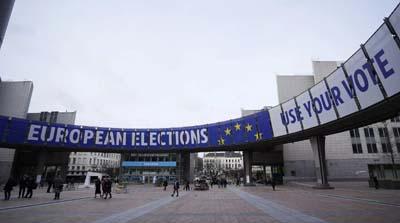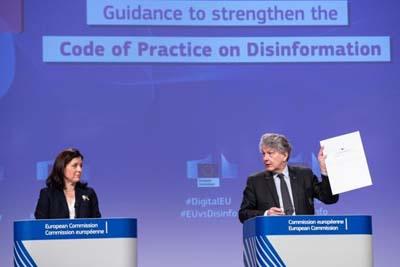
European Commission begins drafting new guidelines to combat election disinformation
Brussels: The European Commission (EC) announced Thursday that it is drafting new Digital Service Act (DSA) guidelines on false information aimed to strengthen and protect election integrity.
The guidelines are being drafted under Article 35 of the DSA, which empowers the commission and Digital Services Coordinators of the Member States to “issue guidelines (…) to present best practices and recommend possible mitigation measures.” This is the first time that guidelines have been introduced under Article 35.The Commission stated that to aid its efforts in drafting the new guidelines, it has launched a public consultation which will be open for the submission of comments until March 7.

The guidelines are aimed to combat election risks which may arise from misinformation. They will be applicable to all designated “Very Large Platforms” and “Search Engines” in order to ensure they implement “the best practices and possible measures to mitigate systematic risks on their platforms that may threaten the integrity of democratic electoral processes. Executive Vice President for a Europe Fit for the Digital Age, Margrethe Vestager, raised concerns that one of the potential “emerging online risks to electoral processes” may be so-called deep fakes. Deep fakes are the replication or cooption of another person’s likeliness or speech. The guidelines extend beyond misinformation to cover other areas such as the AI Act, Regulation on transparency of political advertising and the commission’s recommendation to promote free, fair and resilient elections.
The EU Digital Services Act is a relatively new legislation first introduced in 2021. It applies to all designated “Very Large Online Platforms” and “Very Large Online Search Engines” from four months of notification of designation. It is designed to create greater protections for users online through the imposition of regulations for digital platforms.
